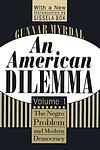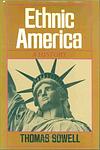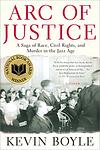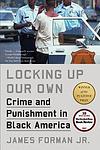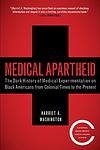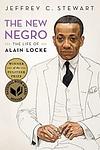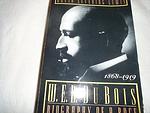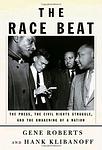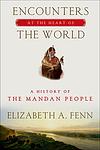The Greatest "American History, Ethics" Books of All Time
Click to learn how this list is calculated.
This list represents a comprehensive and trusted collection of the greatest books. Developed through a specialized algorithm, it brings together 300 'best of' book lists to form a definitive guide to the world's most acclaimed books. For those interested in how these books are chosen, additional details can be found on the rankings page.
Genres
The "American History" category encompasses a broad range of books that delve into the events, figures, and forces that have shaped the United States from its pre-colonial days to the present. This genre includes works on pivotal moments such as the American Revolution, Civil War, and civil rights movements, as well as studies of political, social, and cultural developments across various eras. It covers biographies of influential leaders, analyses of policy changes, and examinations of societal shifts. Whether providing comprehensive overviews or focusing on specific incidents or decades, books in the American History category aim to illuminate the complexities of the nation's past, offering readers insights into the events that have defined the American experience and the context for its ongoing evolution.
The "Ethics" category in books encompasses a broad range of works that delve into the philosophical study of morality, values, and human conduct. It explores the principles that govern individuals' behavior and the moral frameworks that shape societies. Books in this genre often tackle questions of right and wrong, justice and injustice, virtue and vice, as well as the ethical dilemmas that arise in various aspects of life, including business, medicine, technology, and personal relationships. They may present historical perspectives on ethical thought, analyze contemporary moral issues, or offer guidance on leading a moral life. This category includes texts from ancient philosophical treatises to modern-day commentaries, featuring works by ethicists, philosophers, theologians, and other thinkers who seek to understand and influence how we make decisions that impact ourselves, others, and the world around us.
Countries
Date Range
Reading Statistics
Click the button below to see how many of these books you've read!
Download
If you're interested in downloading this list as a CSV file for use in a spreadsheet application, you can easily do so by clicking the button below. Please note that to ensure a manageable file size and faster download, the CSV will include details for only the first 500 books.
Download-
1. The Souls of Black Folk by W. E. B. Du Bois
This seminal work is a collection of essays that explores the history and condition of African Americans at the turn of the 20th century. It delves into the issues of race, class, and the socio-economic realities faced by black people post-emancipation. The author employs a combination of history, sociology, and personal narrative to present a powerful critique of American society, highlighting the struggle for civil rights, the importance of black spirituals, and the concept of "double consciousness" - the idea of viewing oneself through the lens of a society that sees you as inferior.
-
2. Roots by Alex Haley
This groundbreaking historical novel follows several generations of an African American family, beginning with Kunta Kinte, a man captured in Gambia in the 18th century and sold into slavery in the United States. Through Kinte and his descendants, the narrative explores the brutal realities of slavery and its aftermath, the struggle for freedom and civil rights, and the perseverance of a family through immense hardship. The story is based on the author's own family history, making it a significant work in the exploration of African American heritage and identity.
-
3. Incidents in the Life of a Slave Girl by Harriet Jacobs
This book is a poignant autobiography that depicts the life of a young woman born into slavery in the southern United States in the early 19th century. The narrative provides a harrowing account of her childhood and adolescence, marked by abuse and exploitation. In her desperate quest for freedom, she spends seven years in a tiny attic, hiding from her oppressive master. The narrative serves as a powerful critique of the brutalities of slavery, and a testament to the author's indomitable spirit and pursuit of freedom.
-
4. The Fire Next Time by James Baldwin
This book is a powerful exploration of race relations in America in the early 1960s. The author presents his experiences and observations in the form of two essays. The first is a letter to his 14-year-old nephew, discussing the role of race in American history. The second essay takes a broader look at the civil rights movement and the author's own experiences with religion and identity. Throughout, the author presents a passionate plea for the recognition of the humanity and dignity of all people, regardless of race.
-
5. Why We Can't Wait by Martin Luther King
This book is a powerful exploration of the civil rights struggle in the United States in the early 1960s, as seen through the eyes of one of its most prominent figures. It provides a historical context for the push for racial equality, including the role of nonviolent protest in achieving social change. The book also includes a detailed account of the 1963 Birmingham campaign, a pivotal moment in the civil rights movement, and presents a compelling argument for the urgency of addressing racial injustice.
-
6. An American Dilemma by Gunnar Myrdal
This book is a comprehensive sociological study on the issues faced by African Americans in the United States during the mid-twentieth century. The author examines the deep-rooted racial discrimination and inequality prevalent in American society, exploring its origins, implications, and potential solutions. The work is notable for its detailed analysis and its impact on subsequent civil rights movements.
-
7. Roll, Jordan, Roll by Eugene Genovese
"Roll, Jordan, Roll" is a comprehensive exploration of slavery in the United States, specifically focusing on the complex relationships between slaves and their masters. The book examines how slaves managed to preserve their culture, humanity and dignity, while also highlighting the paradoxical nature of a system where slave owners were dependent on their slaves for their livelihoods. It delves into the ways in which slaves resisted their oppression, and the strategies they employed to survive and create their own communities within the confines of the brutal institution of slavery.
-
8. Ethnic America by Thomas Sowell
"Ethnic America" is a comprehensive study of nine ethnic groups in America, including Irish, Jewish, Italian, Chinese, Japanese, and African Americans. The book provides a detailed historical analysis of each group's immigration, struggles, successes, and influence on American culture and society. By examining the economic, social, and cultural patterns of these groups, the book challenges conventional views about race and ethnicity, and explores the complex factors that contribute to the unique experiences of each group in America.
-
9. Parting the Waters by Taylor Branch
"Parting the Waters" is a comprehensive and engaging chronicle of the civil rights movement in America from 1954 to 1963. It offers an in-depth look into the lives of key figures such as Martin Luther King Jr., and their struggle to end racial segregation and discrimination. The narrative is filled with detailed accounts of major events from the Montgomery Bus Boycott to the March on Washington, providing a vivid picture of this pivotal era in U.S. history.
-
10. The Strange Career of Jim Crow by C. Vann Woodward
This historical analysis examines the history and development of racial segregation laws, known as "Jim Crow", in the United States. It explores the origins of these laws in the post-Civil War era, their enforcement in the South, and the eventual resistance and dismantling of them during the Civil Rights Movement. The book also challenges the perception that segregation was a natural outcome of racial tensions, instead arguing that it was a system carefully constructed by white elites to maintain economic and political control.
-
11. Common Ground by J. Anthony Lukas
"Common Ground" is a non-fiction book that provides an in-depth examination of racial tensions in Boston, Massachusetts during the 1960s and 1970s, primarily focusing on the controversial issue of court-ordered busing to integrate public schools. The narrative follows three families - one African-American, one Irish-American, and one Yankee - to depict the effects of these tensions on the city's different communities. The book also explores the historical, political, and social context of these events, offering a comprehensive analysis of a critical period in American history.
-
12. Arc of Justice by Kevin Boyle
"Arc of Justice" is a riveting and complex story that unfolds in the racially tense backdrop of 1920s Detroit. The narrative follows an African American physician who moves his family into a predominantly white neighborhood, resulting in a chain of violent events. The doctor stands trial for murder, and the case garners national attention. The book delves into the doctor's fight for justice and the broader societal implications of racial tension, prejudice, and civil rights in America.
-
13. A Testament of Hope: The Essential Writings and Speeches of Martin Luther King, Jr. by Martin Luther King
This book is a comprehensive collection of the significant writings and speeches of a renowned civil rights leader. It includes his most influential and inspirational works, such as the "I Have a Dream" speech and the "Letter from Birmingham Jail", among many others. The book provides a deep insight into his thoughts, philosophies, and strategies for nonviolent protests, and his passionate advocacy for equality, justice, and dignity for all. It serves as a testament to his enduring hope for a more inclusive and equitable society.
-
14. Locking Up Our Own: Crime and Punishment in Black America by James Forman
This book delves into the complex and controversial issue of mass incarceration in the United States, particularly within the African American community. It explores the historical, social, and political factors that contributed to the high rates of black imprisonment. The author examines the role of African American leaders in advocating for tough-on-crime policies and their unintended consequences. The book is a thought-provoking analysis of the intersection of race, crime, and justice in America.
-
15. Slavery by Another Name by Douglas A. Blackmon
The book explores the concept of "neoslavery," which entrapped thousands of African Americans in the South in a system of forced labor after the Civil War. This system was perpetuated by local laws, racial prejudice, and economic manipulation, where black men were arrested on false charges, then sold to companies as cheap labor. The book illuminates the forgotten history of this "age of neoslavery" that persisted into the 20th century and its profound impact on the racial disparities that exist today.
-
16. Albert Murray: Collected Essays & Memoirs by Albert Murray
This collection of essays and memoirs by a renowned American literary and jazz critic offers a profound exploration of the African-American experience. The author's writings cover a wide range of topics, from music and literature to race and identity, providing readers with an insightful perspective on American culture. His memoirs offer a personal look into his own experiences and thoughts, further enriching his exploration of these themes.
-
17. Sons of Mississippi by Paul Hendrickson
"Sons of Mississippi" is a powerful exploration of the legacy of racism in the American South. The book uses a famous photograph of seven Mississippi sheriffs preparing to thwart James Meredith's integration of the University of Mississippi in 1962 as a starting point. The author then traces the lives and descendants of these men, providing a deep and nuanced look at the enduring effects of prejudice and discrimination, as well as the struggle for civil rights and racial equality in the United States.
-
18. Medical Apartheid by Harriet A. Washington
This book is a comprehensive history of medical experimentation on African Americans from the era of slavery to the present day. It investigates the racial disparities in healthcare and delves into the dark history of unethical and often deadly experiments conducted on black people in the United States. The author explores the roots of these practices, their implications, and the ongoing struggle for racial equality in the healthcare system.
-
19. The Problem of Slavery in the Age of Emancipation by David Brion Davis
"The Problem of Slavery in the Age of Emancipation" is a historical work that explores the complexities of slavery and the abolitionist movement during the Age of Emancipation. The book delves into the moral, political, and ideological challenges faced during this time, focusing on the struggles of enslaved Africans and African Americans. It also examines the role of colonization and the struggle to redefine "black" and "white" identities in the aftermath of slavery. The author uses a comparative approach, looking at the American, British, and French experiences of slavery and emancipation.
-
20. The New Negro: The Life of Alain Locke by Jeffrey C. Stewart
This comprehensive biography delves into the life and work of Alain Locke, the first African American Rhodes Scholar and a leading figure in the Harlem Renaissance. The book explores Locke's upbringing, his education, and his struggles with racism and homophobia. It also highlights his role in promoting and shaping black culture and arts during the Harlem Renaissance, his philosophy of the "New Negro," and his influence on a generation of African American artists and intellectuals.
-
21. W.E.B. Du Bois: The Fight for Equality and The American Century by David Levering Lewis
This biography delves into the life of W.E.B. Du Bois, a prominent African-American civil rights activist and scholar. It explores his tireless fight for racial equality in the United States during the 20th century. The book chronicles his role as a founder and leader of the NAACP, his influence in the Harlem Renaissance, his controversial advocacy for black separatism, and his later years as an expatriate in Ghana. It paints a comprehensive picture of Du Bois as a key figure in the struggle for civil rights and the shaping of the American century.
-
22. A Nation under Our Feet by Steven Hahn
"A Nation Under Our Feet" is a comprehensive study of African American political history during the 19th century, particularly from the Civil War to World War I. The book explores the struggle of African Americans to gain and sustain political power within the American democracy. It highlights their journey from slavery to freedom, the establishment of their own institutions and political movements, and their resistance to both subtle and overt forms of disenfranchisement. The book provides a detailed analysis of the black political consciousness and its impact on the American political landscape.
-
23. The Race Beat by Gene Roberts, Hank Klibanoff
"The Race Beat" is a historical exploration of the crucial role that the press played in the civil rights movement in the United States. The book delves into the challenges faced by journalists, both white and black, as they covered the struggle for racial equality in the South during the 1950s and 1960s. It highlights the impact of their stories on shaping public opinion and influencing policy changes, while also examining the tactics used by segregationists to control the narrative.
-
24. Encounters at the Heart of the World by Elizabeth A. Fenn
This historical book delves into the rich and vibrant history of the Mandan Indians, a Native American tribe from the Great Plains region of the United States. The book details their complex agricultural society, their interactions with European explorers and traders, and the devastating impact of smallpox epidemics on their population. The narrative provides a comprehensive and vivid account of the tribe's cultural practices, social structures, and their resilience in the face of adversity.
Reading Statistics
Click the button below to see how many of these books you've read!
Download
If you're interested in downloading this list as a CSV file for use in a spreadsheet application, you can easily do so by clicking the button below. Please note that to ensure a manageable file size and faster download, the CSV will include details for only the first 500 books.
Download




